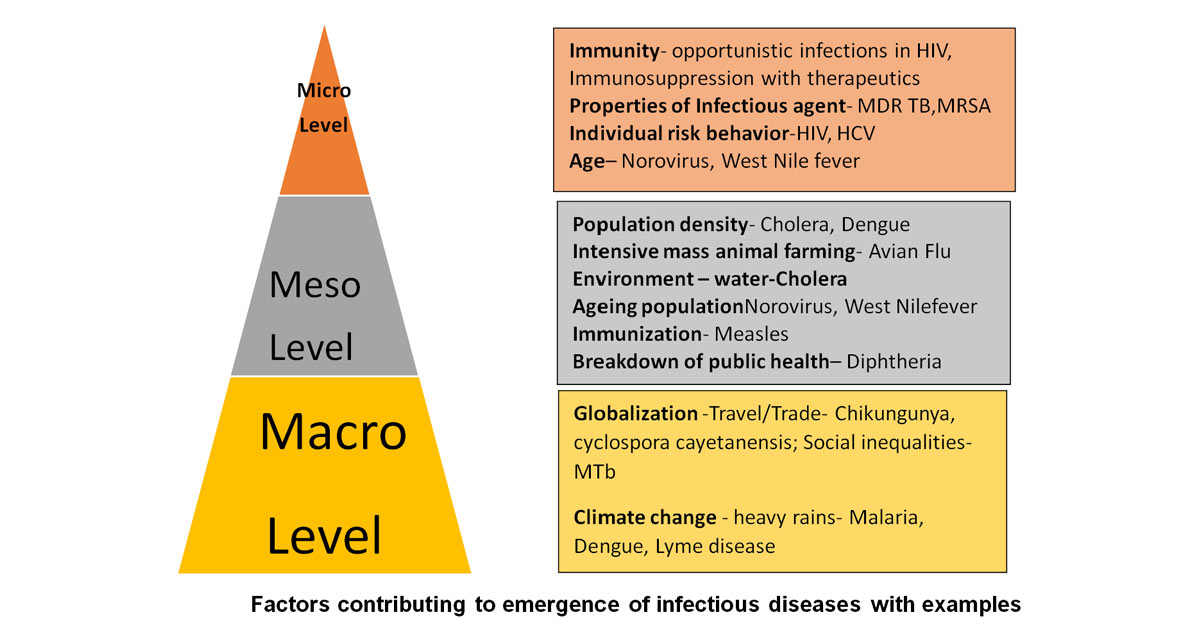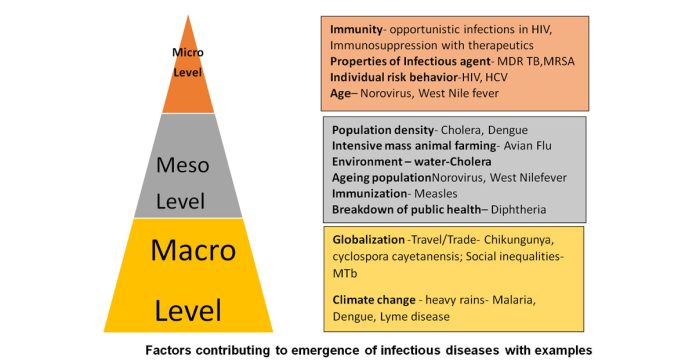Emerging and re-emerging infections
Emerging infectious diseases (EIDs) are the diseases that have appeared new or those which show increased occurrence within the last few decades in a particular geographical area. They include the following categories
• Emerging diagnosis of infectious diseases: old diseases that are newly classified as infectious diseases because of the discovery of a responsible infectious agent
eg Helicobacter pylori associated diseases, Borrelliosis, Hepatitis C, Hepatitis E, Cervical carcinoma
• Newly emerging infectious diseases:
egHIV/AIDS, New variants of Creutzfeld-Jakob Disease,Noro virus, Japanese encephalitis,Avian Influenza,H5N1, SARS, Haemorrhagic fevers -Ebola, Hanta, Lassa, Marburg, Cholera non01types (139),Human ehrlichiosis, Monkey pox,(Kongo),Nipah encephalitis, West Nile Fever
• Re-emerging infectious diseases: reoccurrence or new outbreaks of old infectious diseases with important public health relevance
Eg Dengue, Chikungunya, Cholera, Tuberculosis, Malaria, Syphilis, Measles
• Emerging resistance: increasing resistance of infectious agents to antimicrobial substances.
Eg Multidrug resistant Tuberculosis, Multi resistant malaria, MRSA, HIV

Dr. Y.V.S.Annapurna,
Assistant Professor,
Department of pathology & Microbiology

